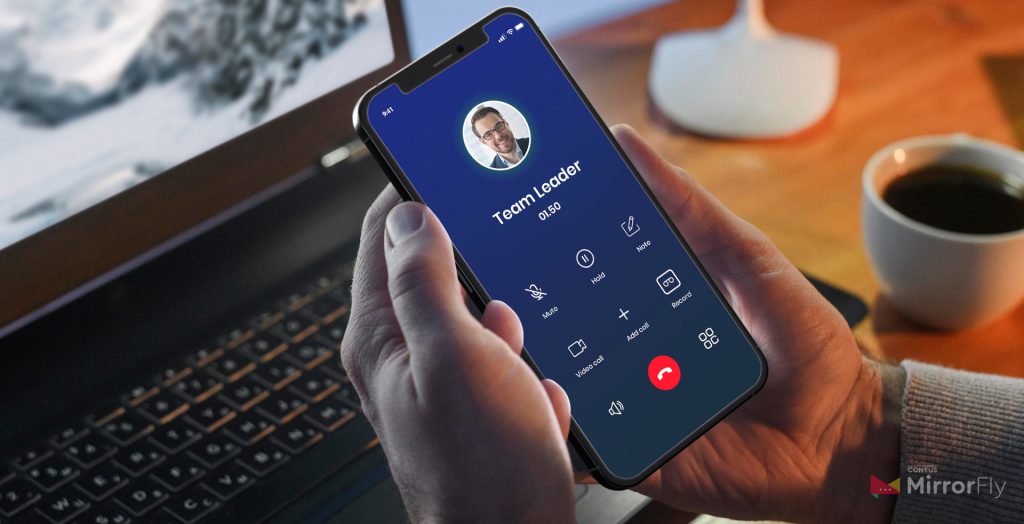[ad_1]
In recent times there has been a surge in the demand for online interactions, specifically audio communications. According to a report, Verizon – American Telecommunication Company recorded a whopping 800 million calls a day and the number has been growing. So, how are enterprises combating this surged demand for audio communication?
And how does integrating voice call APIs and SDKs for mobile apps helps business?
Let’s find out!
Get Started with MirrorFly’s Secure Audio call features Today!!!
Why Is Audio Communication So Beneficial?
Audio communication is an important component that defines an enterprise or an organization. Enterprises use different forms of high-end technology just to communicate effectively with each other. Audio communication is one of the most instant, cost-effective, and easier forms of communication technologies. Whether enterprises require to frequently conversate with their colleagues or engage their target audience – audio communication is the key. Audio communicational tools also help in marketing and business development. Ultimately the purpose is to build a space for commercial and personal interaction with various added features that enhances the entire experience of communication and lets enterprises purposefully collaborate.
How Does Integrating In-App Audio Calls Bridge the Gap?
Writing email and texts is an easy way to communicate no doubt, but some conversations need to be spoken in order to communicate the message efficiently. Adding a question mark to clarify a doubt or exclamations to stress over a sentence is not apt. In such circumstances, in-app voice call sdk to bridge the gap by allowing the conversation to be more personal and effective. Enterprises can communicate with clients and colleagues limitlessly with the use of an in app voice calling integration platforms.
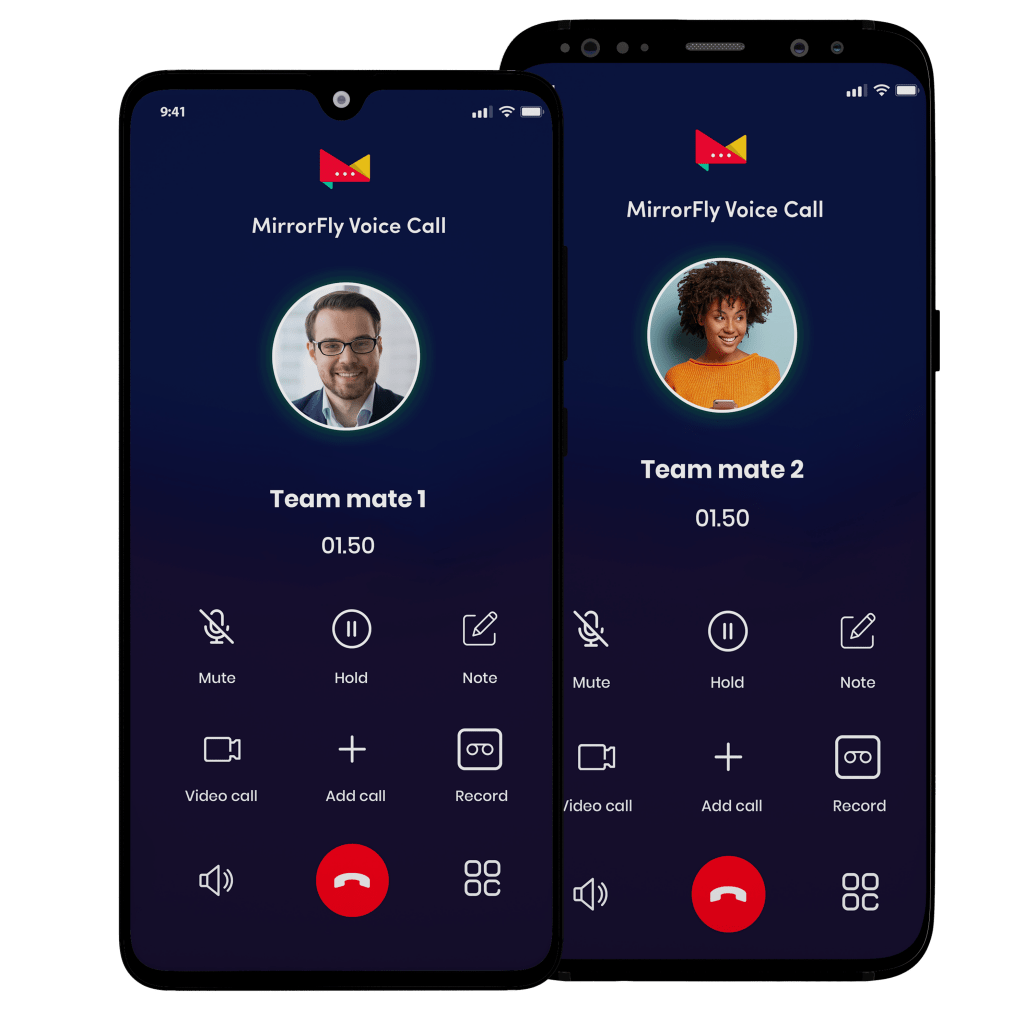
Several commercial websites have integrated live chat or real-time voice brodcasting software. Typically to get an instant and real-time reply most visitors on websites or apps chat via live chat platforms. But the option to directly communicate via call is vital and can drive engagement. Integrating in app audio calling integration eliminates time-consuming conversations and lets parties involved resolve their issues easily by switching over to an audio call.
Read More on Video Call API Integration
So, What Are the Advantages of Voice Chat Apps?
Voice chat API for mobile apps and websites are time-efficient and more convenient than traditional calls. Through the integration of audio chat APIs, enterprises can eliminate misunderstandings and social blunders that often result in instant messaging and connect with their target audience more efficiently.
The Top Advantages of Having Voice Chat SDK
1. Cost-Effective
Making international calls or making several local calls can be an expensive affair. An in-app voice chat solution significantly decreases the costs involved in making local and international calls. Integrating in-app voice call API for android and iOS apps or even websites do not need high-end maintenance, expensive equipment, additional connections, etc. Real-time voice chat services are undeniably a cheaper and effective alternative compared to conventional audio calls
2. Added Features
In-app live voice call integration solutions offer a lot of additional features unlike traditional calling systems – such as offering scalability and analytical details.
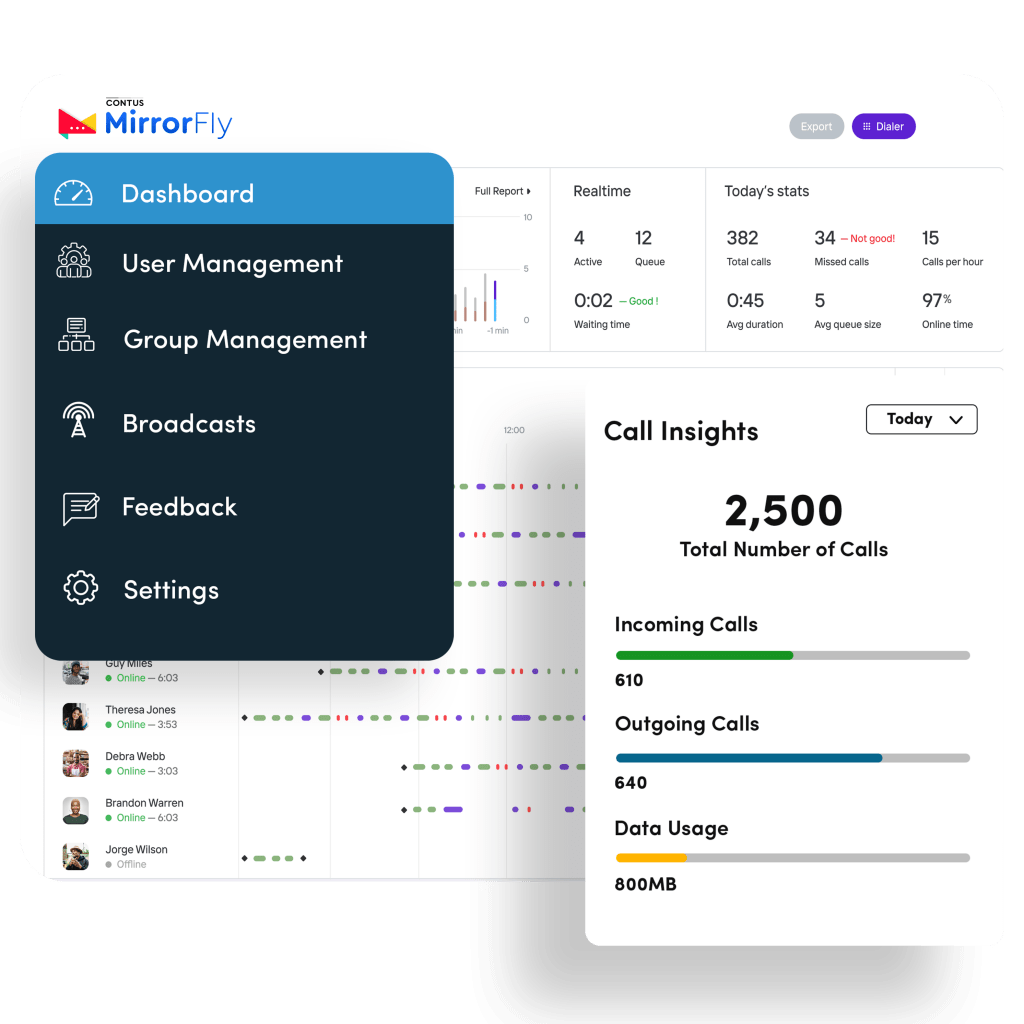
Integrating voice call APIs and SDKs for mobile apps provides high-quality and stutter-free interactive voice calling that makes it easy to add features like voice effects, 360-degree surround sound, AI-powered noise cancellation, voice recognition and so much more.
With an in-app real-time communication enterprises can also enable social interactions, explore work collaborations and integrate the system with IoT devices. However, the biggest added feature is convenience as it offers an easy platform to communicate with no outrageous phone bills for long or international calls.
4. High Quality
There are a lot of Voice call API providers in the market that offer high-quality and good clarity – contrasting to the conventional calling systems. But that’s not the only factor that motivates enterprises to switch to audio communication APIs & SDKs! Some of the best voice call API solutions create a personalized environment that enables us to deliver messages and communicate at a supreme level.
5. Recording Service
Voice chat API for mobile apps and websites also comes along with recording services. An in-built recording feature can be very advantageous to record client meetings, and ongoing discussion between colleagues or to analyze a conversation between executives and customers. These recordings can be retrieved and used for future references or to make updates.
6. Secure & Reliable
In app voice chat solutions offer a secure and reliable platform for enterprises to communicate freely. In app voice call sdk create a trustworthy chat experience that becomes a natural extension of the application. It creates a cohesive environment for the app users that increase the reliability of the app.
Build A Full-featured Voice Chat App Using MirrorFly’s API!
How to Integrate In-app Audio Call APIs into Existing Apps
For every browser and mobile application there is a need for an open source setup for which WebRTC is the solution that is available with real-time communication (RTC) capabilities via simple APIs. WebRTC owns a real-time, media, peer-to-peer exchange between two devices.
However, the entire connection gets inaugurated via a discovery and negotiation process known as signaling. The WebRTC initiative is an extremely exciting industry that allows “real-time communication” via Audio, video, and chat between the browsers without java or flash browser plugins.
What is a Signaling Server and Peer-to-peer Connection?
When it is about coordinating communication the process is known as Signaling. In terms of WebRTC applications to set up calls, there is a need for the clients to exchange the information so as to proceed further. Moreover, signal is something that is used to exchange three types of information,
- Session control messages
- Network configuration
- Media capabilities
Mostly, before beginning with peer-to-peer streaming, the exchange of information via signaling must be completed successfully. Once this process is done the data can be streamed directly between the caller and callee via an intermediary relay server (TURN Server).
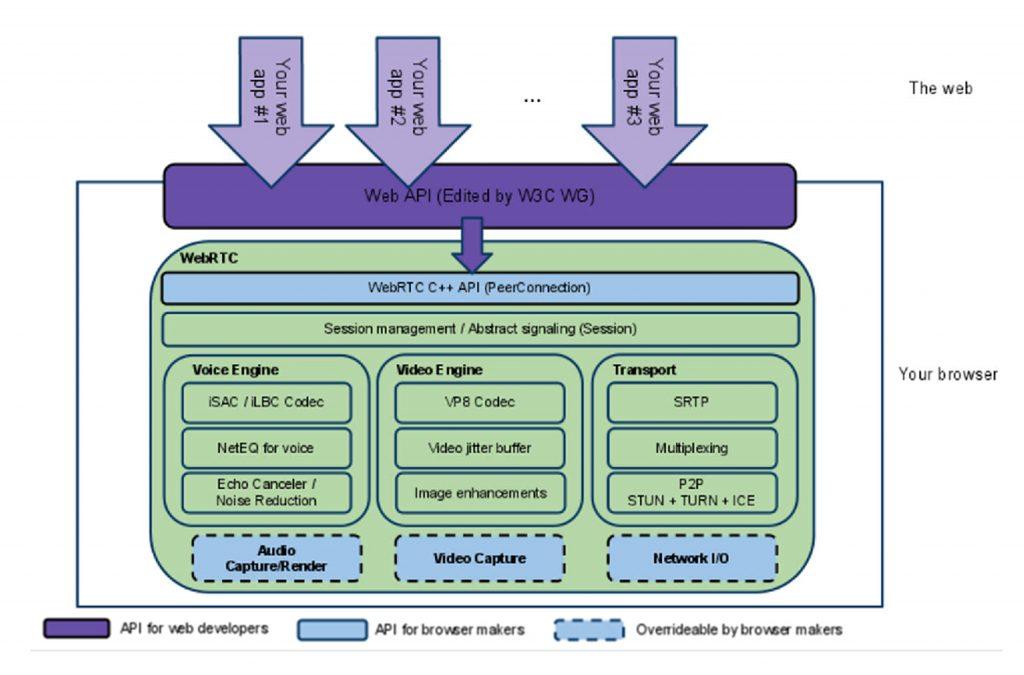
As the communication via streaming is the job of RTCPeerConnection, all its components handle stable and efficient communication of streaming data between peers. However, ICE is a framework that is specifically for connecting peers, as two video chat clients etc. Initially, in the beginning ICE tries to connect peers directly, with the lowest possible latency rate via UDP.
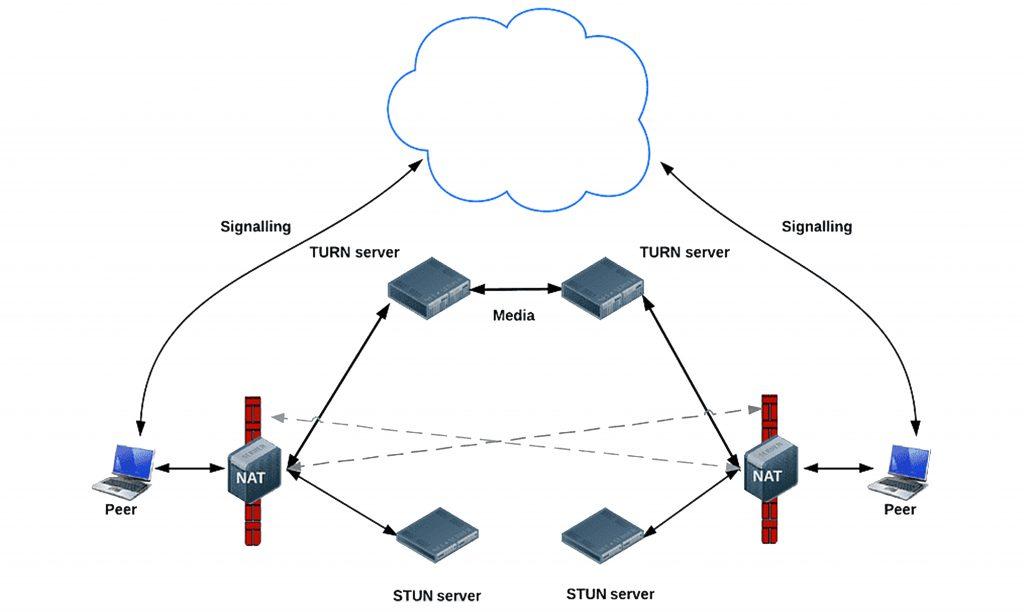
It is the process where STUN servers have a single task that can enable a peer behind a NAT that is to find out its public address and port.
When it comes to the tasks the WebRTC applications needs to perform several things,
- Fetch streaming video, audios, and other data
- Fetch network information and exchange them with other WebRTC clients that are known as peers. This is to enable connection through NAT and firewalls
- To report errors and start to close any session
- Exchange of information about media and client capabilities
- Interact with streaming audio, video, or data
Which Is the Best Voice Call API Solution Available in the Market?
MirrorFly is the best voice call integration solution provider in the market. Integrating in app voice call API for mobile apps, websites or software becomes easy and efficient.
🌟Build, Customize, Go Live: MirrorFly Introducing white-label Live Streaming SDK for Any App🌟
MirrorFly is a custom-made audio call solution that performs proficiently on Android, iOS applications and audio communication APIs and SDKs are equipped with sublime features that boost the performance of the application to ensure the best quality.
It’s audio calling system is 100% customizable, charges one-time license cost only, provides conferencing options, on-premises or cloud video hosting platforms and so much more!
Top features of MirrorFly Audio Calling Integration App:
- Unlimited Calling
- SIP Trunking or Interface
- SIP/VoIP Calling
- Voice REST API
- Audio Encrypted
- Push to Talk
- Voice Recording
- VR (Interactive Voice Recording System)
- Call Barging & Forwarding
- Call Queuing & Routing
MirrorFly certainly can fulfill every surging demand of audio communication. Businesses and enterprises can tackle clients and staff by integrating v
Voice call APIs and SDKs for web apps offered by MirrorFly.
Build A Highly Scalable Voice Call Experience with Our API!
Frequently Asked Questions(FAQ)
- What is Voice Call API?
A Voice Call API is a plug-and-play software interface that enables making and receiving calls in any app, without the need for writing codes from scratch. In the backend, the Voice API connected the app to the PSTN (Public Switched Telephone Network) through the internet.
- What is the Best Audio Call API?
The Best Audio calling APIs are:
1. MirrorFly
2. Apphitect
3. Sendbird
4. Agora
5. Plivo
6. Sinch
7. EnableX
8. Vonage. - How to Integrate SDK in Android app?
Follow the below steps to integrate SDK into your Android app:
1. Add MirrorFly SDK to your project
2. Enable Google identifier permissions
3. Register User
4. Set the Call listeners
5. Initialize the SDK
6. Verify your integration.
[ad_2]
Source link
